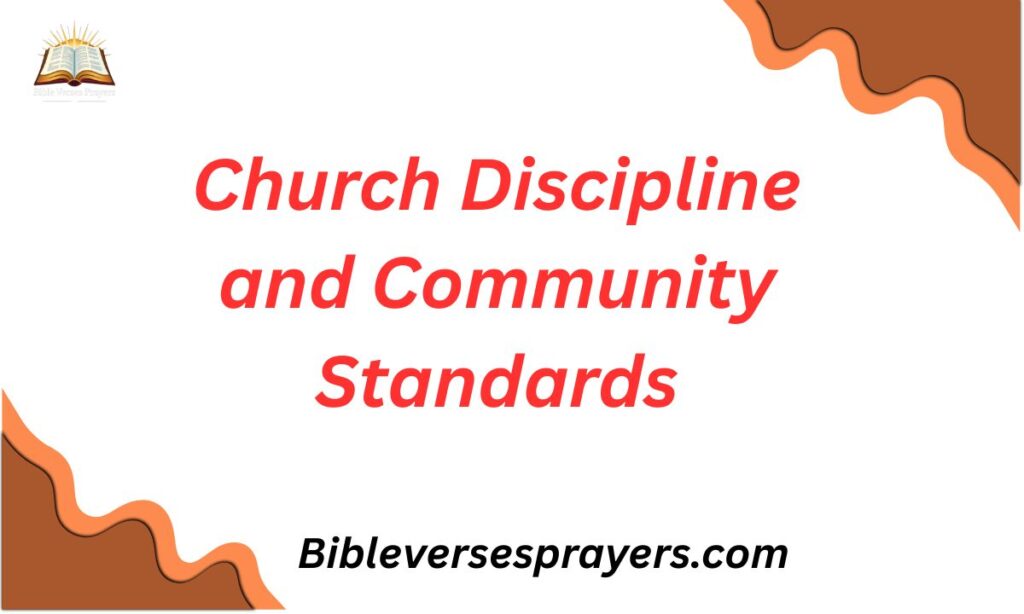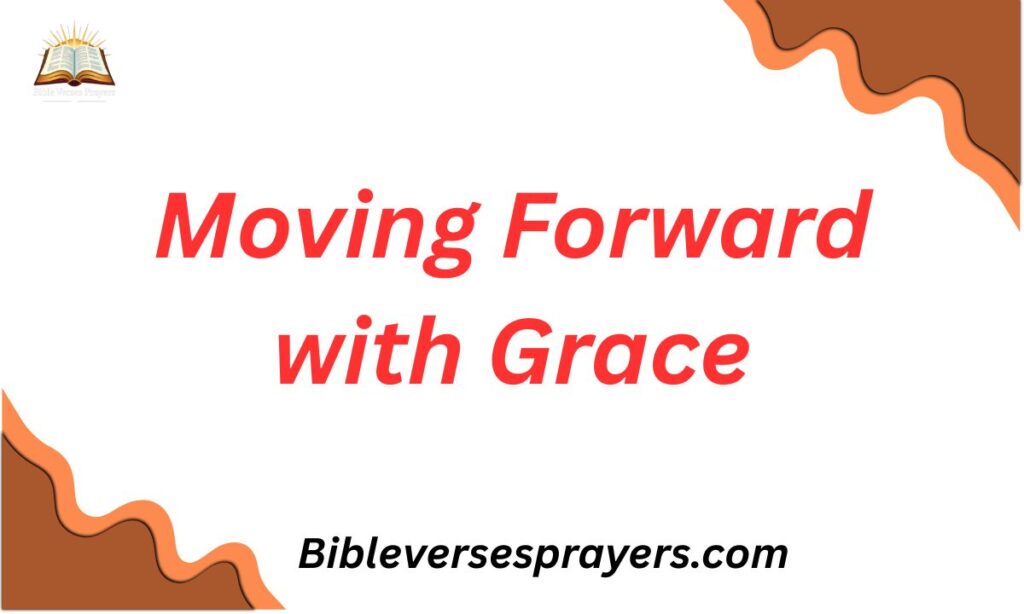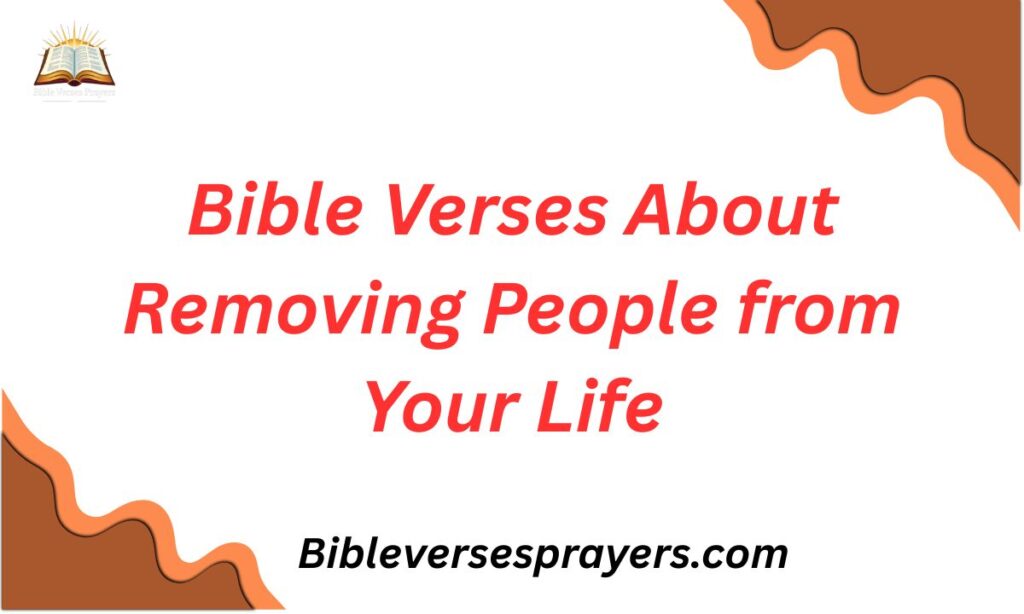Making the difficult decision to remove someone from your life is never easy, especially for believers who are called to love and forgive. However, the Bible provides clear guidance on when and how to establish healthy boundaries with toxic or harmful individuals.
Scripture teaches us that protecting our spiritual, emotional, and mental well-being sometimes requires difficult choices about relationships. The Bible doesn’t call us to be doormats or to endure abuse in the name of love.
Instead, it offers wisdom about discerning which relationships build us up and which tear us down. Through biblical principles, we can learn to navigate complex relationships while maintaining our integrity and faith.
The Foundation of Healthy Boundaries
Proverbs 13:20 – “Walk with the wise and become wise, for a companion of fools suffers harm.”
This verse establishes the fundamental principle that our companions directly influence our character and life trajectory. Choosing wise friends leads to personal growth, while associating with foolish people brings unnecessary trouble and harm.
1 Corinthians 15:33 – “Do not be misled: ‘Bad company corrupts good character.'”
Paul’s warning is crystal clear – negative associations can undermine our values and corrupt our character. This verse emphasizes the importance of maintaining boundaries with people who might lead us away from godly living.
Proverbs 22:24-25 – “Do not make friends with a hot-tempered person, do not associate with one easily angered, or you may learn their ways and get yourself ensnared.”
The Bible specifically warns against befriending those with anger issues. Such relationships can lead to adopting similar destructive traits, harming our peace and character development.
2 Corinthians 6:14 – “Do not be yoked together with unbelievers. For what do righteousness and wickedness have in common? Or what fellowship can light have with darkness?”
This passage highlights the importance of alignment in close relationships. While we’re called to love everyone, intimate partnerships with those who fundamentally oppose our values can create division and spiritual conflict.
Wisdom and Discernment in Relationships
James 1:5 – “If any of you lacks wisdom, you should ask God, who gives generously to all without finding fault, and it will be given to you.”
When facing difficult relationship decisions, we’re encouraged to seek God’s wisdom. He promises to provide guidance generously to those who ask with sincere hearts.
Proverbs 27:12 – “The prudent see danger and take refuge, but the simple keep going and pay the penalty.”
Wisdom involves recognizing harmful situations and taking appropriate action to protect ourselves. Ignoring red flags in relationships often leads to painful consequences.
1 John 4:1 – “Dear friends, do not believe every spirit, but test the spirits to see whether they are from God, because many false prophets have gone out into the world.”
This verse teaches us to be discerning about spiritual influences in our lives. Testing whether people’s influence aligns with God’s truth helps us maintain spiritual health.
Psalm 26:4-5 – “I do not sit with the deceitful, nor do I associate with hypocrites. I abhor the assembly of evildoers and refuse to sit with the wicked.”
David’s example shows us that avoiding deceitful and hypocritical individuals is not only acceptable but necessary for maintaining integrity and righteousness.
Church Discipline and Community Standards

1 Corinthians 5:11 – “But now I am writing to you that you must not associate with anyone who claims to be a brother or sister but is sexually immoral or greedy, an idolater or slanderer, a drunkard or swindler. Do not even eat with such people.”
Paul gives specific instructions about maintaining boundaries with professing believers who persist in destructive behaviors without repentance. This isn’t about judgment but about protecting the community’s spiritual health.
Titus 3:10 – “Warn a divisive person once, and then warn them a second time. After that, have nothing to do with them.”
The Bible provides a clear process for dealing with divisive individuals. After appropriate warnings, it’s both wise and biblical to establish firm boundaries.
Romans 16:17 – “I urge you, brothers and sisters, to watch out for those who cause divisions and put obstacles in your way that are contrary to the teaching you have learned. Keep away from them.”
Paul urges believers to actively avoid those who create division and oppose sound doctrine. Protecting the unity and truth of the faith community sometimes requires difficult decisions.
Matthew 18:15-17 – “If your brother or sister sins, go and point out their fault, just between the two of you. If they listen to you, you have won them over. But if they will not listen, take one or two others along, so that ‘every matter may be established by the testimony of two or three witnesses.’ If they still refuse to listen, tell it to the church; and if they refuse to listen even to the church, treat them as you would a pagan or a tax collector.”
Jesus provides a structured approach to handling conflicts and unrepentant sin. When all attempts at restoration fail, treating someone “as a pagan or tax collector” means establishing appropriate boundaries while still showing love.
Recognizing Toxic Behavior Patterns
2 Timothy 3:2-5 – “People will be lovers of themselves, lovers of money, boastful, proud, abusive, disobedient to their parents, ungrateful, unholy, without love, unforgiving, slanderous, without self-control, brutal, not lovers of the good, treacherous, rash, conceited, lovers of pleasure rather than lovers of God—having a form of godliness but denying its power. Have nothing to do with such people.”
This passage provides a comprehensive list of toxic traits to recognize and avoid. Paul’s instruction to “have nothing to do with such people” is direct and unambiguous.
Proverbs 26:20 – “Without wood a fire goes out; without a gossip a quarrel dies down.”
Gossip and slander fuel conflict and division. Distancing yourself from people who engage in such behaviors helps maintain peace and prevents unnecessary drama.
Proverbs 16:29 – “A violent person entices their neighbor and leads them down a path that is not good.”
The Bible warns against associating with violent or destructive individuals who can lead others astray. Setting boundaries with such people is essential for personal safety and spiritual health.
Galatians 5:9 – “A little yeast works through the whole batch of dough.”
Even small negative influences can corrupt our entire lives. This metaphor illustrates why it’s crucial to address toxic relationships before they spread their influence throughout our lives.
Balancing Love and Boundaries
Matthew 7:6 – “Do not give dogs what is sacred; do not throw your pearls to pigs. If you do, they may trample them under their feet and turn and tear you to pieces.”
Jesus teaches us to be wise about sharing precious things with those who won’t appreciate or respect them. This includes our time, energy, and emotional investment.
Proverbs 29:9 – “If a wise person goes to court with a fool, the fool rages and scoffs, and there is no peace.”
Sometimes engaging with difficult people only leads to more conflict without resolution. Wisdom sometimes means choosing not to engage rather than seeking vindication.
Matthew 6:14-15 – “For if you forgive other people when they sin against you, your heavenly Father will also forgive you. But if you do not forgive others their sins, your Father will not forgive your sins.”
Forgiveness is crucial for our spiritual health, but forgiveness doesn’t always mean maintaining close relationships. We can forgive someone while still maintaining healthy boundaries.
Romans 12:18 – “If it is possible, as far as it depends on you, live at peace with everyone.”
This verse acknowledges that living at peace with everyone isn’t always possible. We should make every effort on our part, but we can’t control others’ responses or behaviors.
Moving Forward with Grace

Philippians 3:13-14 – “Brothers and sisters, I do not consider myself yet to have taken hold of it. But one thing I do: Forgetting what is behind and straining toward what is ahead, I press on toward the goal to win the prize for which God has called me heavenward in Christ Jesus.”
Paul’s example encourages us to focus on moving forward rather than dwelling on past hurts or failed relationships. God has plans for our future that may require leaving certain relationships behind.
Isaiah 43:18-19 – “Forget the former things; do not dwell on the past. See, I am doing a new thing! Now it springs up; do you not perceive it? I am making a way in the wilderness and streams in the wasteland.”
God promises to do new things in our lives. Sometimes this requires letting go of relationships that no longer serve His purposes for us.
Psalm 1:1 – “Blessed is the one who does not walk in step with the wicked or stand in the way that sinners take or sit in the company of mockers.”
This psalm begins by declaring the blessedness of those who choose not to associate with negative influences. Making wise choices about relationships leads to God’s blessing.
Conclusion
Removing people from your life is never a decision to be taken lightly, but Scripture makes it clear that sometimes such actions are necessary for our spiritual, emotional, and physical well-being. The Bible doesn’t call us to endure abuse or toxic relationships in the name of love. Instead, it provides wisdom for discerning which relationships build us up and which tear us down.
The key principles from Scripture include: seeking God’s wisdom in difficult relationship decisions, recognizing toxic behavior patterns, establishing healthy boundaries while maintaining a forgiving heart, and focusing on moving forward rather than dwelling on past hurts. Remember that forgiveness and boundaries can coexist – we can forgive someone while still protecting ourselves from their harmful behavior.
Frequently Asked Questions
Is it biblical to cut someone out of your life completely?
Yes, Scripture provides several examples where complete separation is appropriate, particularly in cases involving unrepentant sin, divisive behavior, or persistent toxicity. However, this should always be done after prayer, seeking godly counsel, and following biblical processes like those outlined in Matthew 18.
How do I know if I should remove someone from my life?
Look for persistent patterns of behavior that harm your spiritual, emotional, or physical well-being. If someone consistently displays the toxic traits listed in 2 Timothy 3:2-5, refuses correction after multiple attempts, or actively leads you away from God, it may be time to establish boundaries.
Can I remove a family member from my life?
While Scripture emphasizes honoring family relationships, it also acknowledges that some relationships may be unhealthy. You can maintain love and forgiveness while establishing necessary boundaries, even with family members. Each situation requires prayer and wisdom.
What’s the difference between forgiveness and reconciliation?
Forgiveness is releasing resentment and choosing not to seek revenge – this is required of all believers. Reconciliation involves restoring relationship and trust – this requires repentance and change from the other party. You can forgive someone without reconciling.

David Smith is an experienced SEO expert and the founder of BibleVersesPrayers.com, a platform dedicated to sharing the truth, hope, and power of God’s Word through meaningful Bible verses and heartfelt prayers.






